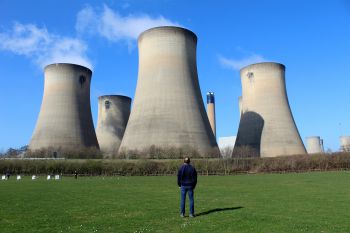Research news
University of Sussex researchers celebrate national net zero award
By: Vicky Welstead
Last updated: Friday, 24 October 2025

An interdisciplinary decarbonisation project led by researchers at the University of Sussex Business School has won a national award for helping lead the UK’s transition to net zero.
Focused on lowering emissions from the nation’s industrial clusters and heartlands, the Industrial Decarbonisation Research and Innovation Centre (IDRIC) was awarded Research Centre of the Year at the edie Net Zero awards in London, on Friday 17th October.
The centre is co-directed by Professor Benjamin Sovacool, an energy policy specialist at the University of Sussex and projects have been co-managed by several of the university’s sustainability experts.
The award judges praised IDRIC as the UK’s first major research centre to address the challenge of decarbonising heavy industry. Combining engineering, chemistry and energy research with social sciences, its researchers shed light on technical and policy challenges in reducing the environmental impact of industry.
Professor Sovacool commented: “Industry is one of the most difficult areas to get action moving on climate. We call it ‘hard to abate’ from an emissions standpoint. But IDRIC showed it is possible to work well with industry partners and achieve real reductions in carbon emissions. It’s about getting technology, policy, and governance all working together to serve that common goal.”
Examples of the centre’s recent work include documenting the experiences of communities in the UK's industrial heartlands and analysing policies that can be used to achieve the UK's net zero ambitions.
The news comes after the Climate Change Committee warned the government that the country is not prepared for the extreme weather events already brought about by climate change, “let alone” what is expected to come. Professor Matthew Lockwood, a University of Sussex energy and climate expert conducting research with IDRIC commented:
“If we fail to decarbonise our industries we will lose them. With the EU imposing a carbon border tax, without decarbonisation measures we would face extra tariffs to our largest markets. Steelmaking, for example, has now almost all closed down in the UK. This matters especially for regional inequality because industries are located in poorer regions of the UK outside London and the South-East, provide relatively well-paid jobs and they attract inward investment.”